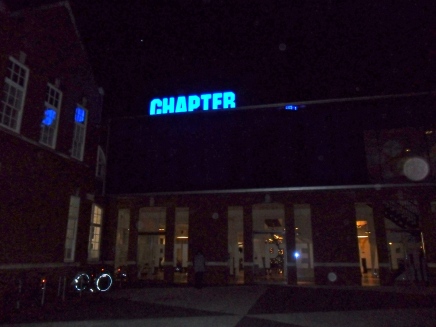With the commercial value of short stories low and cuts to the arts scene high, expresslit. investigates the short story scene in Cardiff over the last year.

Results of expresslit’s recent poll found that short stories take up only 5% of most people’s bookshelves
As a form of fiction, short stories have been around for hundreds of years. In fact, some of the most famous works of literature in our canon today, such as Dickens, were initially serialized in the form of short fiction.
In the fast pace of everyday life, with quick commutes and dwindling attention spans, is it possible that the short story will make a comeback?
Editor of short story journal Riptide, Sally Flint, said, “Short stories seem better suited to fitting into a busy life style – they can be dipped into as and when the reader has time to catch a glimpse of other worlds.”
So how does the short story scene in Cardiff shape up over the past year?
Quarterly literary magazine the Raconteur has relaunched in print this December. The first issue themed ‘America’ contains short stories, articles and poetry from a range of writers, including local writers from Wales.
Editor Dylan Moore said, “The issue highlights the amount of talent in the immediate facility.” With an increase in self-publications and personal blogs there has been a proliferation of short story writing on online platforms.
“Publications like this are an important outlet for short fiction,” said Dylan. “It’s a trusted outlet so you know what you’re getting is good.”
Despite an international distribution, the Raconteur has strong roots in Wales and is published by Welsh publisher Parthian Books. Co-editor Gary Raymond said, “We want to promote Welsh writers and do things for Welsh culture.”
The last year has been a big year for local short story publications with Parthian books publishing Nu2: Memorable Firsts in June, the second volume of a collection of short stories, microfiction and poetry by new writers from Cardiff.
The book aims to give a voice to emerging Cardiff writers.
Editor Tomos Owen said, “It was both an intention of ours to give a platform to a group of writers that were already out there but in doing that the hope was that that it would spur on more people to start writing.”
expresslit. talks to Dr. Tomos Owen about the Nu anthologies, Cardiff’s literary scene and the medium of the short story.
Also published in 2011, in September, was The C Word: An anthology of writing from Cardiff. Editor Kate North already has plans for further editions and believes the anthology is an essential tool for young short story writers. “If an aspiring author has a publication on their CV,” said Kate, “it helps agents and publishers sort the wheat from the chaff.”
 Why does Kate feel it is so important to give short story writers a space to display their work?
Why does Kate feel it is so important to give short story writers a space to display their work?
She believes there is an industry problem in the UK. “Marketers and publishers think they will have an easier time selling products they can define with little ambiguity such as romantic fiction or crime,” said Kate. “So short story collections are not solicited nor are they promoted terribly well.
“When was the last time you walked into a bookshop and noticed a short story collection or a poetry collection on the table as part of the ‘three for two’ offer or with a Richard and Judy Book-club sticker on it?”
Despite innate problems with the short story industry, with a range of smaller publications of short stories, and a rich literary heritage it is no wonder Cardiff is home to some great new short story talent.
Cardiff-based writer Joao Morais, who was a runner up in the 2009 Rhys Davies Short Story competition, finds Cardiff an inspiring city to work in.
“Cardiff is an excellent place for writers of short fiction to be based,” said Joao. “There’s a lot of prizes, magazines, journals and readings here. As a capital city, people tend to take more notice of the scene compared to comparable-sized scenes in Bristol and Manchester.
“The good thing about Welsh institutions,” said Joao, “is that they are (to paraphrase the Gettysburg Address) ‘for the people, by the people.’ It’s good to know that you have someone on your side.”
Cardiff is a vibrant city for a young writer of short fiction to be based. This year has proved there is a strong platform of journals, anthologies and prizes striving to recognise and promote local talent.
Finally, express lit. leaves you with one we made earlier. A short story called Little Mahal.












